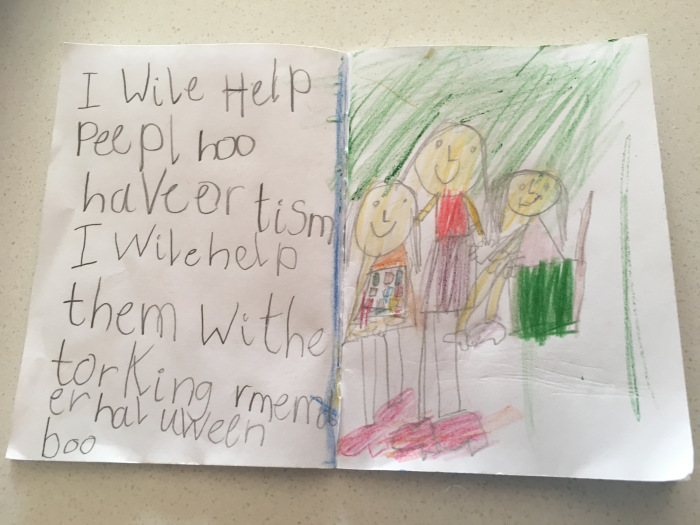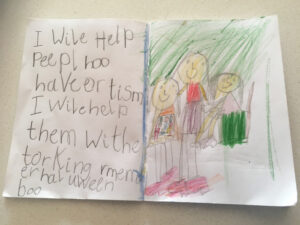AAC users4 February 2021

Recently, I’ve read and listened to alot about people’s views on inclusive education for children with disabilities. I am an advocate of mainstream schooling options for children with disabilities and see in our future a world where schools welcome (not just accept) children of all types, with programs that support all learning needs across all spectrums of abilities, backgrounds and interests. However I also understand that many parents are currently making decisions for their child based on the best options they have available at any given point in time. Until mainstream schooling is well resourced, well supported and easily accessible to all, the choices families make for their children are their own, based on a multitude of considerations and should not be judged.
In this post , I want to reflect on my own experience as a parent of a child without a disability, but who has been exposed to disability since birth due to the nature of my work and interactions with some of my friends who have disabilities.
I’m extremely grateful for what she has and will continue to learn from these experiences. She is learning to embrace difference and to have compassion for people who have different challenges in their lives, she is also learning the following things:
Currently she does not have a child with a disability in her class but she did have in Kindergarten. I welcomed this and would do so again in the future. I see it as a benefit to her learning rather than a detriment. Just as I do when there is a child from another country, culture, or with lives with differences to hers. All children take up the teacher’s time. That’s the point of school. Some take more than others and some need more than others. Most teachers manage the competing demands of a class full of children masterfully and with a fairness that is sometimes difficult for parents of individual children to perceive.
None of us are without risk of some day also having a disability or challenge to our participation in mainstream life. One day my daughter may grow up to have a child of her own with a disability, or a friend or family member. Maybe she will be tasked with caring for me in the future. I’m proud and thankful that she has had the opportunity to develop an awareness of the types of support, equipment and creative problem solving that she may have to undertake in her role as a caregiver. She knows about wheelchairs, powered mobility, sensory considerations, PODDs, speech generating devices, and eye gaze technology. She knows that just because someone can’t speak, or she can’t understand them immediately, that doesn’t mean they don’t have anything to say. She is excited to hear of the accomplishments of my friends or other people with disabilities that we read about and often asks questions like “How do they drive a car?” or “How does he brush his teeth?”. I answer her with as much information as I can share because learning these things is a huge asset to her, to me and the whole of society. Maybe one day she will invent something that will change peoples lives (which may include mine and yours) because she has learned these things as a child. In fact she already wrote about this as a 5 year old.

“I will help people who have Autism. I will help them with the talking.
Remember Halloween – Boo”
(The end of the message was distracted by her upcoming Halloween celebrations). The picture shows her helping her mum at work by holding a PODD communication book.
To those children, families, teachers, support staff and principals who are or have been in mainstream environments. Thankyou. You guys are the Suffragettes for an inclusive and accessible society. Of course we need more resourcing, support and learning to make this thing work well, but the solution is not to give up. You guys are paving the way for better inclusion, and we will learn from the challenges you face today. Just because something is hard, it doesn’t mean it isn’t worth it.
So let’s all do all that we can to achieve our goal faster:
One day the word inclusion will not be necessary. We won’t need a word for it as it will just be a thing. It’s up to us how long we take to get there. Proactive messages and actions will speed things up. Don’t just accept it, promote it!! I’d like to see it in my lifetime please!!
